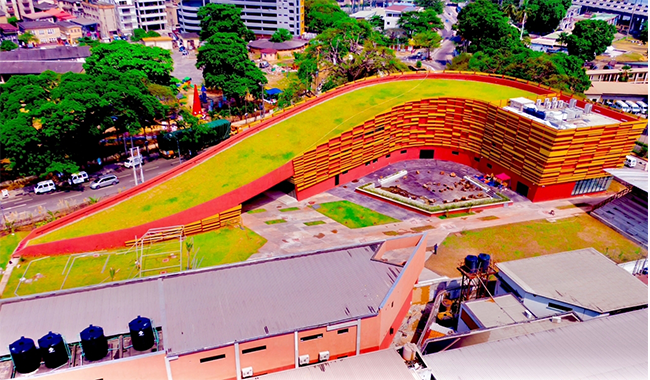Nigerians are favouring design that anticipates the future and architecture that elevates living standards.
At a construction site in Life Camp, Abuja, one humid morning, building foremen in faded helmets watched as builders moved in rhythm to the clank of steel rods and the din of cement mixers.
The careful placement of windows for maximum light and the integration of solar-ready rooftops hint at something more deliberate—property value being designed into every wall, every roof and every sale.
In Nigeria, buyers are no longer satisfied with four walls and a roof. They want design that anticipates the future, architecture that elevates living standards and communities that create prestige.
Despite shrinking purchasing power, demand for luxury apartments in Lagos and Abuja is strong. Yet many age poorly, their rigid design outpaced by evolving lifestyles. Developers are filling in this gap to drive long-term value.
If architecture sets the skeleton, design provides the soul, changing homes from merely functional to irresistibly desirable. A flexible kitchen layout, seamless room flow and smart finishes can mean the difference between a property that stagnates and one that appreciates.
Unlike Europe, where compact kitchens are commonplace, Nigerian kitchens often function as a social hub.
Bilaad Realty, a leading real-estate firm in Abuja, understands this dynamic. Its properties combine Italian-style facades with Nigerian motifs, blending foreign inspiration with local functionality.
“We borrow concepts from different countries, but we filter them through Nigerian living,” remarked Musa Danladi, an architect at the company.
Bilaad adapts global trends, creating expandable kitchens that broaden with families—features that drive higher resale demand.
According to a real-estate report from 2023, homes with adaptable interior design and open layouts achieve up to 30% higher returns on investment within five years compared with rigid builds.
Still, not every international trend works. Features like floor-to-ceiling glass, rooftop terraces and minimalist facades, though favoured abroad, may struggle to catch on locally.
In response, developers are learning to tailor designs for local appeal. “For instance, Milan-inspired facades are paired with shading techniques to reduce heat. London-style open-plan living areas are adjusted to accommodate Nigerian gatherings and larger family units. Dubai-inspired luxury is blended with affordability in middle-income estates,” explained Danladi.
Saving costs
Sustainability is no longer a buzzword, more so in a country where power bills are soaring and water scarcity poses a growing challenge.
The International Finance Corporation (IFC) reports that green-certified buildings in emerging markets like Nigeria attract 8–10% higher sale premiums and achieve 10% higher rental yields.
Many houses today are leaning in, incorporating solar-ready rooftops, water-harvesting systems and natural ventilation—all of which cut down on household expenses while maintaining long-term appeal.
Beyond individual homes, communities shape prestige. A beautiful house on an unplanned street may depreciate, while a moderately priced home in a well-designed estate rises in value. Buyers are also drawn to neighbourhoods equipped with landscaped gardens, play areas and walkways that foster belonging.
Worldwide, smart-home technology is becoming a decisive factor. In Nigeria’s urban markets, smart-enabled homes command 15–25% higher market values compared with the conventional variety. By 2030, a high proportion of urban Nigerian buyers is projected to prefer smart-enabled properties.
As Danladi explains, integrating smart wiring, security systems and adaptable infrastructure into apartments can help ensure their relevance over time.
Abuja as a case study
Districts like Jabi, Guzape and Apo depict how design-driven estates transform value. Well-planned communities with energy-efficient systems, adaptable layouts and modern aesthetics command higher bids today because buyers trust that they’ll remain relevant years afterwards.
Where well-designed properties stay resilient even in economic downturns, poorly designed homes risk rapid depreciation.
In Nigeria’s volatile market, design-driven resilience offers both investors and homeowners long-term security.
The Nigerian real-estate sector is entering a design-driven era. Location still matters, but architecture and design now carry equal weight in determining appreciation. Features like expandable kitchens, sustainable technologies, and smart systems are not luxuries—they are investments.
The homes that will define Nigeria’s future are not those built the fastest, but those built the smartest—homes that never fade with time.
Summary not available at this time.






